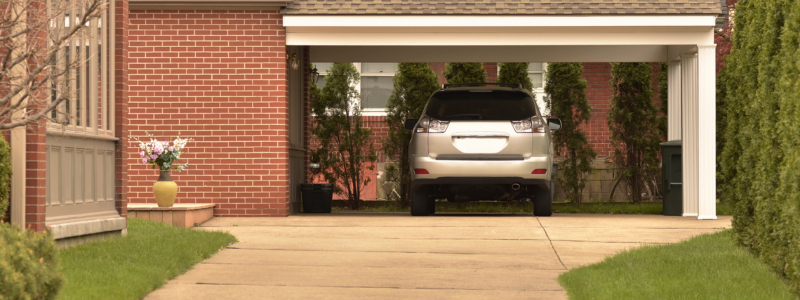Are you new to the world of car ownership, or perhaps considering a new vehicle? Understanding car tax, officially known as Vehicle Excise Duty (VED), is crucial. It’s a mandatory fee for most vehicles used or parked on public roads in the UK, with some exceptions like cyclists and pedestrians.
Car tax has been around since 1937, evolving from an older system established in the 17th century. Collected by the DVLA, the revenue contributes to public interests like road maintenance. The amount you pay depends on various factors, which makes it an important consideration when purchasing a vehicle. Opting for a car in a lower tax band can save you money in the long run and could even boost its resale value.
Find Your Perfect Car With Marsh Finance’s Extensive Marketplace

How is Car Tax Calculated?
The calculation of car tax in the UK hinges on several factors: the vehicle’s first registration date, its CO2 emissions, fuel type, and engine size. Remember, the first registration date isn’t necessarily when you bought it, especially if it’s a used car.
CO2 emissions are measured in grams per kilometre (g/km). You can find your car’s emissions on its V5C registration certificate.
- Cars Registered Before March 1, 2001: Tax is based on engine size, with two rates depending on whether it’s under or over 1549cc.
- Cars Registered Between March 1, 2001, and March 31, 2017: The tax rate is based on fuel type and CO2 emissions.
- Cars Registered After April 1, 2017: In the first year, the tax is based on fuel type and CO2 emissions. Subsequently, it’s based solely on fuel type.
What Does Car Tax Cost?
Car tax costs can be complex, influenced by factors like registration date, fuel type, and emissions. The government website provides a detailed breakdown of each tax band.
For newer models registered after April 1, 2017, the first-year tax ranges from £0 to £2365, based on fuel type and emissions, with diesel cars often incurring higher tax. After the first year, the annual tax is £165 for petrol or diesel cars, and £155 for alternative fuels.
Owners of cars registered between March 1, 2001, and March 31, 2017, pay between £0 and £630 annually, based on CO2 emissions. Cars registered before 2001 are taxed at £180 for engines under 1549cc or £295 for larger engines.
Cars worth over £40,000 attract an additional £355 annual charge for five years unless they are zero emissions.

Who’s Exempt From Road Tax?
Certain vehicles are exempt from road tax:
- Electric Vehicles: Must be powered externally or by an electric storage battery.
- Disability Vehicles: Includes mobility scooters and powered wheelchairs.
- Classic Cars: Vehicles over 40 years old.
- SORN Vehicles: Declared off-road with a Statutory Off-Road Notice.
- Agricultural Vehicles: Used only on private land.

Paying Your Car Tax
You can pay car tax online, via Direct Debit, or at the Post Office. Payment methods include annual lump sums or more manageable instalments with a 5% surcharge.
Consequences of Not Paying Car Tax
Failure to pay leads to penalties, including fines and potential court action. The DVLA employs various measures to enforce compliance.

Declaring Your Car Off-Road (SORN)
If you’re not using your car, declare it off-road with a SORN. This exempts you from paying tax, provided the vehicle isn’t used or parked on public roads.

Selling Your Car?
If you sell your car, you can claim a refund for any unused full months of tax. Car tax isn’t transferable, so inform the DVLA about the sale to trigger the refund process.
Car tax might seem daunting, but it’s a vital part of car ownership. Understanding how it works ensures you’re not only compliant but also possibly saving money in the long term. 🚗💷🛣️

Find Your Perfect Car With Marsh Finance’s Extensive Marketplace
Navigating car tax is just one piece of the car ownership puzzle. If you’re in the market for a new vehicle, Marsh Finance is here to help. Our extensive car marketplace offers a vast selection of vehicles from across the UK, ensuring you find the perfect match for your needs and budget.
With Marsh Finance, not only can you choose from a wide array of cars, but you can also benefit from our straightforward financing options. Make an informed choice with our easy-to-understand guides and finance your dream car seamlessly.
Finance is subject to status
Representative Example
Rates from 12.9%
Representative example: borrowing £10,000 over 60 Months with a representative of 23.0% APR, an annual interest rate of 23.0% (fixed) and a deposit of £0.00, the amount payable would be 59 repayments of £269.58 per month, with one final repayment of £279.58 (which includes the option to purchase fee of £10.00), with a total cost of credit of £6,184.80 and a total amount payable of £16,184.80. Marsh Finance Limited are a lender, not a broker.
Marsh Finance Limited are a lender, not a broker.
This is for illustrative purposes only and is not a quote or an offer of finance.